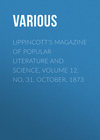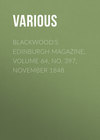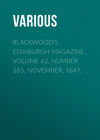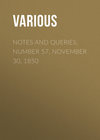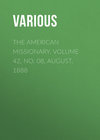Czytaj książkę: «Lippincott's Magazine of Popular Literature and Science, Volume 12, No. 31, October, 1873», strona 8
CHAPTER XII
"Well, after you wouldn't take me to Europe, you know—"
"You naughty girl!"
"No interruptions, sir. After you couldn't take me to Europe I felt very much hurt and wounded, and ready to catch at any straw of suspicion. I ran away from you that night and left you in the parlor, hoping that you would call me back, and yet longing to hide myself from you too. You understand?"
"Yes, let us not dwell on that."
"Well, I believe I never thought once of Fanny Meyrick's going to Europe too until she joined us on the road that day—you remember?—at the washerwoman's gate."
"Yes; and do you remember how Fidget and I barked at her with all our hearts?"
"I was piqued then at the air of ownership Fanny seemed to assume in you. She had just come to Lenox, I knew; she could know nothing of our intimacy, our relations; and this seemed like the renewal of something old—something that had been going on before. Had she any claim on you? I wondered. And then, too, you were so provokingly reticent about her whenever her name had been mentioned before."
"Was I? What a fool I was! But, Bessie dear, I could not say to even you, then, that I believed Fanny Meyrick was in—cared a great deal for me."
"I understand," said Bessie nodding. "We'll skip that, and take it for granted. But you see I couldn't take anything for granted but just what I saw that day; and the little memorandum-book and Fanny's reminiscences nearly killed me. I don't know how I sat through it all. I tried to avoid you all the rest of the day. I wanted to think, and to find out the truth from Fanny."
"I should think you did avoid me pretty successfully, leaving me to dine coldly at the hotel, and then driving all the afternoon till train-time."
"It was in talking to Fanny that afternoon that I discovered how she felt toward you. She has no concealment about her, not any, and I could read her heart plainly enough. But then she hinted at her father's treatment of you; thought he had discouraged you, rebuffed you, and reasoned so that I fairly thought there might be truth in it, remembering it was before you knew me."
"Listen one minute, Bessie, till I explain that. It's my belief, and always was, that that shrewd old fellow, Henry Meyrick, saw very clearly how matters were all along—saw how the impetuous Miss Fanny was—"
"Falling in love: don't pause for a 'more tenderer word,' Charlie. Sam Weller couldn't find any."
"Well, falling in love, if you will say it—and that it was decidedly a difficult situation for me. I remember so well that night on the piazza, when Fanny clung about me like a mermaid, he bade her sharply go and change her dripping garments, and what Fanny calls 'a decidedly queer' expression came into his face. He could not say anything, poor old chap! and he always behaved with great courtesy to me. I am sure he divined that I was a most unimpassioned actor in that high-comedy plunge into the Hudson."
"Very well: I believe it, I'm sure, but, you see, how could I know then what was or was not true? Then it was that I resolved to give you leave—or rather give her leave to try. I had written my note in the morning, saying no finally to the Europe plan, and I scrawled across it, in lead-pencil, while Fanny stood at her horse's head, those ugly words, you remember?"
"Yes," I said: "'Go to Europe with Fanny Meyrick, and come up to Lenox, both of you, when you return.'"
"Then, after that, my one idea was to get away from Lenox. The place was hateful to me, and you were writing those pathetic letters about being married, and state-rooms, and all. It only made me more wretched, for I thought you were the more urgent now that you had been lacking before. I hurried aunt off to Philadelphia, and in New York she hurried me. She would not wait, though I did want to, and I was so disappointed at the hotel! But I thought there was a fate in it to give Fanny Meyrick her chance, poor thing! and so I wrote that good-bye note without an address."
"But I found you, for all, thanks to Dr. R–!"
"Yes, and when you came that night I was so happy. I put away all fear: I had to remind myself, actually, all the time, of what I owed to Fanny, until you told me you had changed your passage to the Algeria, and that gave me strength to be angry. Oh, my dear, I'm afraid you'll have a very bad wife. Of course the minute you had sailed I began to be horribly jealous, and then I got a letter by the pilot that made me worse."
"But," said I, "you got my letters from the other side. Didn't that assure you that you might have faith in me?"
"But I would not receive them. Aunt Sloman has them all, done up and labeled for you, doubtless. She, it seems—had you talked her over?—thought I ought to have gone with you, and fretted because she was keeping me. Then I couldn't bear it another day. It was just after you had sailed, and I had cut out the ship-list to send you; and I had worked myself up to believe you would go back to Fanny Meyrick if you had the chance. I told Aunt Sloman that it was all over between us—that you might continue to write to me, but I begged that she would keep all your letters in a box until I should ask her for them."
"But I wrote letters to her, too, asking what had become of you."
"She went to Minnesota, you know, early in February."
"And why didn't you go with her?"
"She scolded me dreadfully because I would not. But she was so well, and she had her maid and a pleasant party of Philadelphia friends; and I—well, I didn't want to put all those hundreds of miles between me and the sea."
"And was Shaker Village so near, then, to the sea?"
"Oh, Charlie," hiding her face on my shoulder, "that was cowardice in me. You know I meant to keep the cottage open and live there. It was the saddest place in all the world, but still I wanted to be there—alone. But I found I could not be alone; and the last people who came drove me nearly wild—those R–s, Fanny Meyrick's friends—and they talked about her and about you, so that I could bear it no longer. I wanted to hide myself from all the world. I knew I could be quiet at the Shaker village. I had often driven over there with Aunt Sloman: indeed, Sophia—that's the one you saw—is a great friend of Aunt Maria's."
"So the lady-abbess confessed, did she?" I asked with some curiosity.
"Yes: she said you were rudely inquisitive; but she excused you as unfamiliar with Shaker ways."
"And were you really at Watervliet?"
"Yes, but don't be in a hurry: we'll come to that presently. Sophia gave me a pretty little room opening out of hers, and they all treated me with great kindness, if they did call me Eliza."
"And did you," I asked with some impatience, remembering Hiram's description—"did you sew beads on velvet and plait straw for mats?"
"Nonsense! I did whatever I pleased. I was parlor-boarder, as they say in the schools. But I did learn something, sir, from that dear old sister Martha. You saw her?"
"The motherly body who invited me in?"
"Yes: isn't she a dear? I took lessons from her in all sorts of cookery: you shall see, Charlie, I've profited by being a Shakeress."
"Yes, my darling, but did you—you didn't go to church?"
"Only once," she said, with a shiver that made her all the dearer, "and they preached such dreary stuff that I told Sophia I would never go again."
"But did you really wear that dress I saw you in?"
"For that once only. You see, I was at Watervliet when you came. If you had only gone straight there, dear goose! instead of dodging in the road, you would have found me. I had grown a little tired of the monotony of the village, and was glad to join the party starting for Niskayuna, it was such a glorious drive across the mountain. I longed for you all the time."
"Pretty little Shakeress! But why did they put us on such a false track?"
"Oh, we had expected to reach home that night, but one of the horses was lame, and we did not start as soon as we had planned. We came back on Saturday afternoon—Saturday afternoon, and this is Monday morning!", leaning back dreamily, and looking across the blue distance to the far-off hills. "Then I got your card, and they told me about you, and I knew, for all the message, that you'd be back on Sunday morning. But how could I tell then that Fanny Meyrick would not be with you?"
"Bessie!" and my hand tightened on hers.
"Oh, Charlie, you don't know what it is to be jealous. Of course I did know that—no, I didn't, either, though I must have been sure underneath that day. For it was more in fun than anything else, after I knew you were in the meeting-house—"
"How did you know?"
"I saw you drive up—you and Hiram and Mrs. Hiram."
"You didn't think, then, that it was Mrs. Charles?"
"So I stole into Sophia's room, and put on one of her dresses. She is tall too, but it did not fit very well."
"I should think not," I answered, looking down admiringly at her.
"In fact," laughing, "I took quite a time pinning myself into it and getting the neckerchief folded prim. I waited till after the sermon, and then I knew by the singing that it was the last hymn, so I darted in. I don't know what they thought—that I was suddenly converted, I suppose, and they would probably have given thanks over me as a brand snatched from the burning. Did I do the dance well? I didn't want to put them out."
"My darling, it was a dreadful masquerade. Did you want to punish me to the end?"
"I was punished myself, Charlie, when you fell. Oh dear! don't let's talk about the dreadful thing any more. But I think you would have forgiven Elder Nebson if you had seen how tenderly he lifted you into the wagon. There, now: where are we going to live in New York, and what have we got to live on besides my little income?"
"Income! I had forgotten you had any."
"Ask Judge Hubbard if I haven't. You'll see."
"But, my dear," said I gravely, drawing forth the packet from my breast, "I, too, have my story to tell. I cannot call it a confession, either; rather it is the story of somebody else—Hallo! who's broken the seal?" For on shipboard I had beguiled the time by writing a sort of journal to accompany Fanny's letter, and had placed all together in a thick white envelope, addressing it, in legal parlance, "To whom it may concern."
"I did," said Bessie faintly, burying her face on my arm. "It fell out of your pocket when they carried you up stairs; and I read it, every word, twice over, before you came to yourself."
"You little witch! And I thought you were marrying me out of pure faith in me, and not of sight or knowledge."
"It was faith, the highest faith," said Bessie proudly, and looking into my eyes with her old saucy dash, "to know, to feel sure, that that sealed paper concerned nobody but me."
And so she has ever since maintained.
SARAH C. HALLOWELL.
A STRANGE LAND AND A PECULIAR PEOPLE
A nodule of amygdaloid, a coarse pebble enveloped in a whitish semi-crystalline paste, lies on the table before me. I know that a blow of the hammer will reveal the beauties of its crystal interior, but I do not crush it. It is more to me as it is—more than a letter plucked from the stone pages of time. Coarse and plain, it is an index to a chapter of life. In the occupations of a busy existence we forget how much we owe to the sweet emotional nature which, by mere chance association, retains the dearer part of the past fixed in memory, just as the graceful volutes of a fossil shell are preserved in the coarse matrix of a stony paste. In this way the nodule connects itself with my emotional life, and recalls the incidents of this sketch.
We were journeying over the mountains in the autumn of 1869. Our camp was pitched in a valley of the ascending ridges of the Cumberland range, on the south-east border of Kentucky. At this point the interior valley forms the letter J, the road following the bend, and ascending at the foot of the perpendicular.
It is nearly an hour since sunset, but the twilight still lingers in softened radiance, mellowing the mountain-scenery. The camp-wagons are drawn up on a low pebbly shelf at the foot of the hills, and the kindled fire has set a great carbuncle in the standing pool. A spring branch oozes out of the rocky turf, and flows down to meet a shallow river fretting over shoals. The road we have followed hangs like a rope-ladder from the top of the hills, sagging down in the irregularities till it reaches the river-bed, where it flies apart in strands of sand. The twilight leans upon the opposite ridge, painting its undulations in inconceivably delicate shades of subdued color. Although the night is coming on, the clear-obscure of that dusk, like a limpid pool, reveals all beneath. A road ascending the southern hill cuts through a loamy crust a yellow line, which creeps upward, winding in and out, till nothing is seen of it but a break in the trees set clear against the sky. No art of engineer wrought these graceful bends: it is a wild mountain-pass, followed by the unwieldy buffalo in search of pasturage. Beyond, the mountain rises again precipitously, a ragged tree clinging here and there to the craggy shelves. Around and through the foliage, like a ribbon, the road winds to the top. A blue vapor covers it and the hills melting softly in the distance. At the base of the hills a little river winds and bends to the west through a low fertile bottom, the stem of the J, which is perhaps a mile in width. It turns again, its course marked by a growth of low water-oaks and beeches, following the irregular fold in the hills which has been described.
Leaning against the bluffs hard by the camp is a low white cottage, with its paddock and pinfold, and the cattle are coming up, with bells toning irregularly as they feed and loiter on the way. The supper-horn sends forth a hoarse but mellow fugue in swells and cadences from the farm-house. Over all this sweet rural scene of mountain, valley, river and farm, and over the picturesque camp, with stock, tent and wagons, now brightened by the grace of a young girl, the twilight lingers like love over a home. As I listen and look a soft voice from the carriage at my side says, "Is the ground damp? May I get out?"
I turn to my little prisoner, and as the mingled lights cross her features I see that her wide, dark-gray eyes are swimming in tears. "Why, what is it?" I ask.
"Nothing: everything is so sweet and tranquil. I was wondering if our new home would be like this—not the hills and valleys, you know, but so quiet and homelike."
So homelike! With that vague yearning, we, like so many Southerners of the period, were wagoning from old homesteads, a thousand miles of travel, to a resting-place.
"It will be like home if you are there," I think as I assist her to alight—the burden daily growing lighter in my arms and heavier on my heart—but I say nothing.
Pretty soon she is at her usual relaxation, looking for shells, ivy berries and roots of wild vines to adorn that never-attainable home. The kindly, generous twilight, so unlike the swift shrift of the Florida levels, still lingers; and presently, amid bits of syenite, volcanic tuff and scoria, she has found this nodule of amygdaloid. It differs from the fossil shells and alluvial pebbles she is used to find, and she is curious about it.
I tell the story of the watershed of the Ohio as well as I can—how it was the delta of a great river, fed by the surfage of a continent lying south—eastwardly in the Atlantic; of the luxuriant vegetation that sprang up as in the cypress-swamps of her old home in Louisiana, passing, layer by layer, into peat, to be baked and pressed into bituminous coal, that slops over the flared edges of the basin in Pennsylvania, like sugar in the kettles, and is then burnt to anthracite. I promise her that in some dawn on the culminating peak, when the hills below loom up, their tops just visible like islands in a sea of dusk, I will show her a natural photograph of that old-world delta, with the fog breaking on the lower cliffs like the surf of a ghostly sea. She listens as to a fairy tale, and then I tell her of the stellar crystals concealed in the rough crust of the amygdaloid. She puts it away, and says I shall break it for her when we get home. We have traveled a long way, by different paths, since then, but it has never been broken—never will be broken now.
In addition to the geological and botanical curiosities the mountains afford, my companion had been moved alternately to tears and smiles by the scenes and people we met—their quaint speech and patient poverty. We passed eleven deserted homesteads in one day. Sometimes a lean cur yelped forlorn welcome: at one a poor cow lowed at the broken paddock and dairy. We passed a poor man with five little children—the eldest ten or twelve, the youngest four or five—their little stock on a small donkey, footing their way over the hills across Tennessee into Georgia. It was so pitiful to see the poor little babes-in-the-wood on that forlorn journey; and yet they were so brave, and the poor fellow cheered them and praised them, as well he might. Another miserable picture was at the white cottage near our camp. The lawn showed evidences of an old taste in rare flowers and vines, now choked with weeds. I knocked, and a slovenly negress opened the door and revealed the sordid interior—an unspread bed; a foul table, sickly with the smell of half-eaten food and unwashed dishes; the central figure a poor, helpless old man sitting on a stool, I asked the negress for her master: she answered rudely that she had no master, and would have slammed the door in my face. Why tell the story of a life surrounded by taste and womanly adornments, followed by a childless, wifeless old age? The poor, wizened old creature was rotting in life on that low stool among his former dependants, their support and scorn. The Emancipation Proclamation did not reach him. But one power could break his bonds and restore the fallen son and the buried wife—the great liberator, Death.
The natives of this region are characterized by marked peculiarities of the anatomical frame. The elongation of the bones, the contour of the facial angle, the relative proportion or disproportion of the extremities, the loose muscular attachment of the ligatures, and the harsh features were exemplified in the notable instance of the late President Lincoln. A like individuality appears in their idiom. It lacks the Doric breadth of the Virginian of the other slope, and is equally removed from the soft vowels and liquid intonation of the southern plain. It has verbal and phraseological peculiarities of its own. Bantering a Tennessee wife on her choice, she replied with a toss and a sparkle, "I-uns couldn't get shet of un less'n I-uns married un." "Have you'uns seed any stray shoats?" asked a passer: "I-uns's uses about here." "Critter" means an animal—"cretur," a fellow-creature. "Longsweet-'nin'" and "short sweet'nin'" are respectively syrup and sugar. The use of the indefinite substantive pronoun un (the French on), modified by the personals, used demonstratively, and of "done" and "gwine" as auxiliaries, is peculiar to the mountains, as well on the Wabash and Alleghany, I am told, as in Tennessee. The practice of dipping—by which is meant not baptism, but chewing snuff—prevails to a like extent.
In farming they believe in the influence of the moon on all vegetation, and in pork-butchering and curing the same luminary is consulted. Leguminous plants must be set out in the light of the moon—tuberous, including potatoes, in the dark of that satellite. It is supposed to govern the weather by its dip, not indicate it by its appearance. The cup or crescent atilt is a wet moon—i.e., the month will be rainy. A change of the moon forebodes a change of the weather, and no meteorological statistics can shake their confidence in the superstition. They, of course, believe in the water-wizard and his forked wand; and their faith is extended to the discovery of mineral veins. While writing this I see the statement in a public journal that Richard Flannery of Cumberland county (Kentucky) uses an oval ball, of some material known only to himself, which he suspends between the forks of a short switch. As he walks, holding this extended, the indicator announces the metal by arbitrary vibrations. As his investigations are said to be attended with success, possibly the oval ball is highly magnetized, or contains a lode-stone whose delicate suspension is affected by the current magnetism, metallic veins being usually a magnetic centre. Any mass of soft iron in the position of the dipping-needle is sensibly magnetic, and a solution of continuity is thus indicated by the vibrations of the delicately poised instrument. Flaws in iron are detected with absolute certainty by this method. More probably, however, the whole procedure is pure, unadulterated humbug. In all such cases the failures are unrecorded, while the successes are noted, wondered at and published. By shooting arrows all day, even a blind man may hit the mark sometimes.
During this journey it was a habit with me to relate to my invalid companion any fact or incident of the day's travel. She came to expect this, and would add incidents and observations of her own. In this way I was led to compile the following little narrative of feminine constancy and courage during the late war.
It begins with two boys and a girl, generically divided into brother and sister and their companion, living on the divide-range of mountains between Kentucky and Tennessee. The people raised hogs, which were fattened on the mast of the range, while a few weeks' feeding on corn and slops in the fall gave the meat the desired firmness and flavor. They cultivated a few acres of corn, tobacco and potatoes, and had a kitchen-garden for "short sass" and "long sass"—leguminous and tuberous plants. Apples are called "sour sass." The chief local currency was red-fox scalps, for which the State of Kentucky paid a reward: the people did not think of raising such vermin for the peltry, as the shrewder speculator of a New England State did. They sold venison and bear-meat at five cents a pound to the lame trader at Jimtown, who wagoned it as far as Columbia, Kentucky, and sold it for seventy-five cents. They went to the log church in the woods on Sundays, and believed that Christ was God in the flesh, with other old doctrines now rapidly becoming heretical in the enlightened churches of the East. Living contentedly in this simple way, neither rich nor poor, the lads grew up, nutting, fishing, hunting together, and the companion naturally looked forward to the day when he would sell enough peltry and meat to buy a huge watch like a silver biscuit, such as the schoolmaster wore, make a clearing and cabin in the wild hills, and buy his one suit of store clothes, in which to wed the pretty sister of his friend.
Then came the war. Although it divided the two friends, the old kindness kept their difference from flaming forth in the vendetta fashion peculiar to the region. It was a great deal that these two young fellows did not believe that military morality required them to shoot each other on sight. Yet, on reconsideration, I will not be so sure of their opinion on this point. Perhaps they thought that, morally and patriotically, they ought to do this, and were conscious of weakness and failure of duty in omitting to do it. Perhaps the old good-will survived for the girl's sake; and if so, I do not think the Union was the worse preserved on that account.
The young lover went into the ranks of Wolford's regiment of loyal mountaineers, and rose—slowly at first, more rapidly as his square sense and upright character became known.
The girl, in her retirement, heard of her lover's advancement with pride and fear. She distrusted her worth, and found the hard menial duties of life more irksome than before. Not that she shrank from labor, but she feared its unfitting her for the refinement required by her lover's new social position. She had few examples to teach her the small proprieties of small minds, but a native delicacy helped her more than she was conscious of. She read her Bible a great deal, and used to wonder if Mary and "the other Mary" were ladies. She thought Peter was probably an East Tennesseean, or like one, for when he denied his Lord they said he did not talk like the others. It seemed hard that to say "we-uns" and "you-uns," as she habitually did, though she tried not, and to use the simple phrases of her childhood, should be thought coarse or wrong. Such matters were puzzles to her which she could not solve. She got an old thumbed Butler's Grammar and tried hard to correct the vocables of her truant tongue. I am afraid she made poor progress. She had a way of defying that intolerable tyrant, the nominative singular, and put all her verbs in the plural, under an impression, not without example, that it was elegant language. She had enough hard work to do, poor girl! to have been quit of these mental troubles. Her brother was away, her parents were old, and all the irksome duties of farm-house and garden fell upon her. She had to hunt the wild shoats on the range, and to herd them; to drive up the cows, and milk them; to churn and make the butter and cheese. She tapped the sugar trees and watched the kettles, and made the maple syrup and sugar; she tended the poultry, ploughed and hoed the corn field and garden, besides doing the house-work. Her old parents could help but little, for the "rheumatiz," which attacks age in the mountains, had cramped and knotted their limbs, and they were fit for nothing except in fine dry weather. Surely, life was hard with her, without her anxieties about her lover's constancy and her own defects. Letter-writing was a labor not to be thought of. She tried it, and got as far as "I am quite well, and I hope these few lines will find you the same," and there stopped. She ascribed the difficulty to her own mental and clerical defects, but I think it lay quite as much in the nature of the relation. How was she to express confidence when she distrusted? how express distrust when her maidenly promptings told her it was an indelicate solicitation? She could say Brindle had gone dry and the blind mare had foaled, or that crops were good; but what was that to say when her heart was thirsting and drying up? She blotted the paper and her eyes and her hands, but she could not write a line. She was a sensible girl, and gave it up, leaving her love to grow its own growth. The tree had been planted in good ground, and watered: it must grow of itself.
By and by military operations brought her lover into the old neighborhood. I cannot say he put on no affectations with his new rank, that he did not air his shoulder-straps a taste too much; but the manly nature was too loyal to sin from mere vanity. He seemed natural, easy, pleased with her, and urged a speedy wedding.
We may guess how the Lassie—we must give her a name, and that will do—worshiped her King Cophetua in shoulder-straps. Had he not stooped from his well-won, honorable height, the serene azure of his blue uniform, to sue for her? In all the humility of her pure loving heart she poured out her thankfulness to the Giver of all good for this supreme blessing of his love.
In the midst of this peace and content her brother appeared with a flag of truce. He was hailed as a prosperous prodigal, for he too was a lad of metal, but he brought one with him that made poor Lassie start and tremble. It was a lady, young and beautiful, clad in deep mourning. Although sad and retiring, there was that dangerous charm about her which men are lured by, and which women dread—a subtle influence of look and gesture and tone that sets the pulses mad. She was going for the remains of her husband, and told a pathetic story, but only too well. She used always the same language, cried at the same places, and seemed altogether too perfect in her part for it to be entirely natural. So, at least, Lassie thought, even while reproaching herself for being hard on a sister in affliction. Yet she could not escape the bitterness of the thought that the widow, Mrs. G–, was "a real lady"—that ideal rival she had been so long dreading in her lover's absence; and now that he had come, the rival had also come.
Her brother dropped a hint or two about the lady: Mrs. G– had the "shads," "vodles" of bank-stock and niggers, and she paid well for small service. If King Cophetua could get leave to escort her to head-quarters, Mrs. G– would foot the bills and do the handsome thing. It was hard such a woman should have to go on such a sad business alone.
What could his sister say? She had herself put off the wedding a month: she wanted to get her ample store of butter, eggs and poultry to the trader at Jimtown, or, better still, to the brigade head-quarters at Bean's Station. With her own earnings she could then buy such simple muslins for her wedding-dress as became her and would not shame her lover. She wished she had married him, as he had urged, in her old calico gown. If he had asked her now, if he had pressed a little, she would have yielded; but he did not. He seemed to accept the proprieties and woman's will as unalterable. In fact, he did follow Mrs. G–'s motions with only too lively an admiration. Perhaps he did not know himself what his feelings were—what this new fever in his pulses meant. Besides the calm, holy connubial love there is a wild animal passion that tears through moral creeds and laws. Once, Lassie saw her brother give him a half-angry stare, that passed into a laugh of cool scorn. "Take care of Mrs. G–," he said to King Cophetua. "You will get bit there if you don't look out."
How the sister would have pressed that warning had she dared! Innocent as her lover might be, she believed that Mrs. G– saw the growing passion and encouraged it. But there was nothing to take hold of. There was nothing bold, forward or inviting in her manner. If a lady has long lashes, must she never droop them lest she be charged with coquetry? May not a flush spring as naturally from shy reserve as from immodesty?
